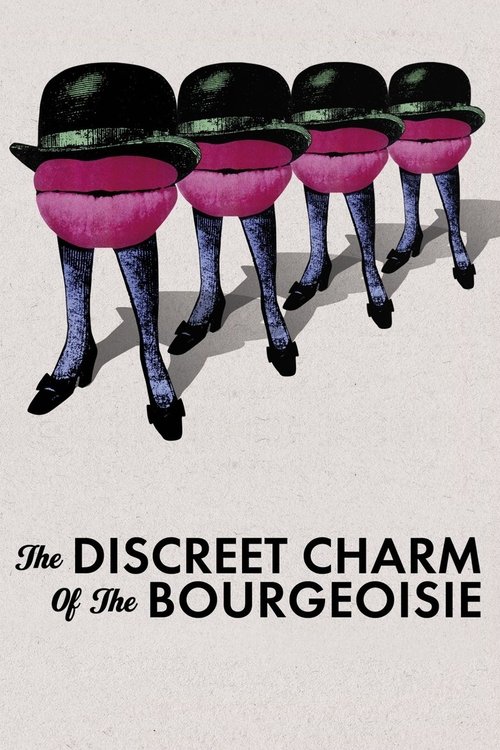
Title: The Discreet Charm of the Bourgeoisie
Year: 1972
Director: Luis Buñuel
Writer: Luis Buñuel
Cast: Fernando Rey (Don Rafael), Delphine Seyrig (Simone Thévenot), Paul Frankeur (François Thévenot), Stéphane Audran (Alice Sénéchal), Bulle Ogier (Florence),
Runtime: 101 min.
Synopsis: In Luis Buñuel’s deliciously satiric masterpiece, an upper-class sextet sits down to dinner but never eats, their attempts continually thwarted by a vaudevillian mixture of events both actual and imagined.
Rating: 7.472/10